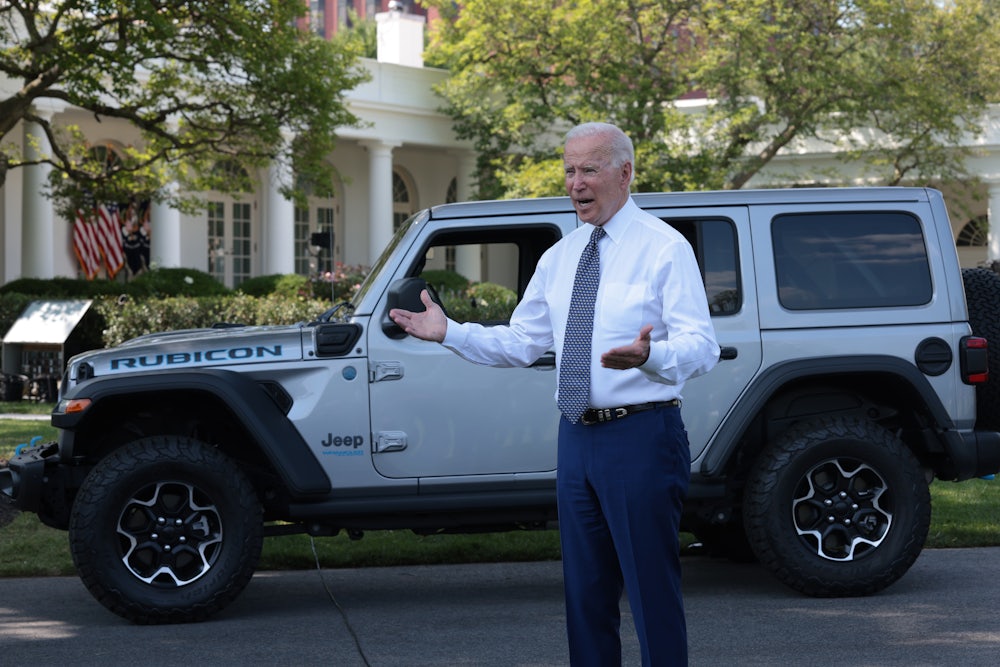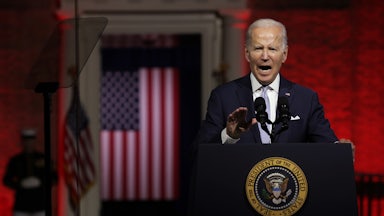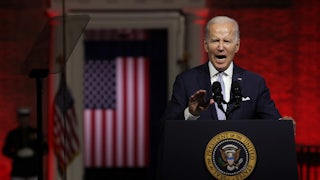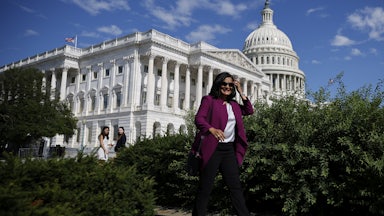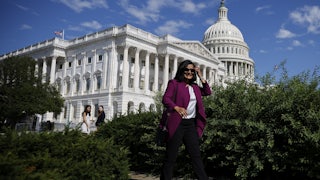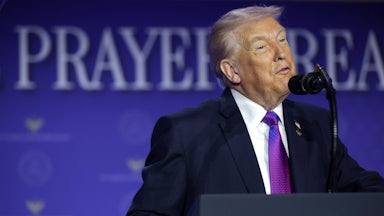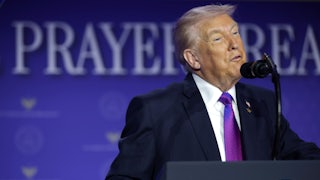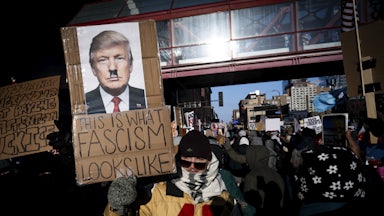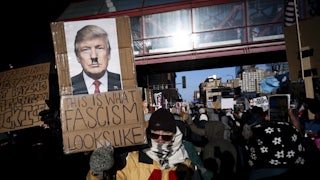Two months ago, Joe Biden signed the Inflation Reduction Act into law, an improbable legislative victory that capped off a summer of political and legislative wins. Democrats suddenly had cause for cautious optimism: The party had clear momentum and was leading in the generic ballot—an impressive achievement given the fact that it controlled the White House and both chambers of Congress. Republicans, meanwhile, were shooting themselves in the foot again and again. New horrific revelations about the assault on the Capitol on January 6, 2021, made regular headlines. Gas prices ebbed, as did fears of an imminent recession. Americans recoiled in disgust at the Supreme Court’s overturning of Roe v. Wade. For years, many in the party had been warning about the dangers of Republican extremism. Over the summer, it seemed as if voters were starting to agree.
With three weeks to go until the midterm elections, however, it’s another story entirely. A New York Times/Siena College poll released on Monday found that Republicans had a four-point advantage in the generic ballot, a five-point shift from the previous month. The underlying cause is not particularly complex: Once again, it’s the economy, stupid. “The inflation outlook improved a little bit as gas prices fell but then got worse again, and momentum this cycle has tracked with these sort of baseline economic indicators,” Data for Progress’s Ethan Winter told The Hill. Voters aren’t happy about the economy and are doing what they typically do in that situation: blame the party in power.
This puts the Democrats in a tricky position. Their best moments during the campaign cycle have come whenever there was a change of subject: Either other issues would jump to the forefront—abortion or the GOP’s authoritarian drift—or inflationary pressures would finally begin to smooth. That wasn’t an unreasonable bet at the time, but Democrats made a pair of tactical errors. Their initial messaging strategy labeled inflation as “transitory,” which hasn’t borne out despite the fact that many economists agreed with that assessment at one point. The other error was actually naming their big spending bill “the Inflation Reduction Act,” a moniker rooted more in wishcasting than any practical effect that a bill that didn’t really do much to fight inflation would have on the world within several months of its passage. The bill didn’t make matters worse, of course—but it generated some understandable expectations that conditions might more significantly improve.
One reason it was unwise to suggest that their revived Build Back Better Act was actually filled with secret inflation-fighting sauce was that the suggestion that a solution to inflation was in Democrats’ hands foreclosed the possibility of explaining that much of it was actually beyond the control of Congress. Global price rises are, after all, a global phenomenon, brought about in part by supply chain disruptions related to the pandemic and Russia’s flailing invasion of Ukraine. No one is entirely sure what the solution is to a problem with so many intertwined origin stories, beyond a prolonged and strenuous unwinding. Beyond lending a hand to that project to the extent that they are able, there’s little else that the president or congressional Democrats can actually do to make prices just drop. Unfortunately, for Democrats, “I’m sorry, there’s nothing we can do about that” is not a winning message—even if Republicans don’t have any good ideas to halt inflation either.
As I argued last month, there was an alternative idea at the ready. Democrats’ best bet was to go all in on hammering Republican economic orthodoxy: Make the case that while the struggle Americans were experiencing was very real, GOP misrule would inevitably make things worse. This is a lower lift than magically waving inflation away, as Republican economic ideas are, at this point, well established: Cut taxes for the rich, and take an ax to social spending. Doing either would make inflation worse, exacerbate economic inequality, and slow recovery. Bernie Sanders laid out this approach in a recent appearance on Meet the Press:
Bernie Sanders explains to Chuck Todd that Biden isn't responsible for inflation, "Inflation I'm sure you know, Chuck, is an international problem. In Germany it is 10%, U.K. It is 10%, Canada it is 7% inflation globally is caused by the pandemic and the break in supply chains." pic.twitter.com/gAZKV7zriu
— Sarah Reese Jones (@PoliticusSarah) October 16, 2022
Another reason that it would have been a good bet to go after the Republican Party’s bad economic ideas is that we’ve finally gotten around to the part of the election cycle where they’re actually saying them out loud. House Minority Leader Kevin McCarthy has already pledged to take the economy hostage if the GOP retakes the chamber by (once again) touching off a pointless but potentially costly debt ceiling fight. This ties in neatly with the Democrats’ larger argument about the extremism of the Republican Party: This is a party with no real policies, solutions, or political ideas, just an array of increasingly destructive stunts. The Democrats’ best argument remains making the case that they are the party of sensible governance and that it’s too big a risk—in myriad ways—to allow the GOP to unleash chaos.
Over at The American Prospect, Robert Kuttner points to a recent memo from party strategist Mike Lux, laying out a five-point plan for the party. Democrats, in his view, should make the case that corporations—Republicans’ best friends—are playing a crucial role in price rises and are doing so to line their own pockets; that the Inflation Reduction Act is reducing health care costs; that Social Security is seeing its biggest increase in nearly half a century; that the Democrats are working to bring back manufacturing jobs as part of the IRA, and that will help fix supply chain issues that are leading to inflation; and that Democrats will bring back the child tax credit if they retain their majorities, something that will help struggling families (and something they should have fought harder to retain). These are all sensible ideas that allow Democrats to tout their recent successes without falling into a familiar economic trap: boasting about an economy that is still leaving tens of millions behind.
Beneath the national lens on the election, in specific races dotted all over the country, many Democrats are making these arguments already. As Semafor’s Dave Weigel noted today on Twitter, these themes are getting put to the test by Democratic candidates: “If Dems lose the House it’ll largely be with the message all the smart people say they should be using.” The effort may be all for naught: Absent some magic shift in economic fortunes, voters are likely to punish the party anyway. But it’s clear that avoiding a conversation about inflation and the economy isn’t working, and it’s better late than never as there are still some important elections ahead.
,
